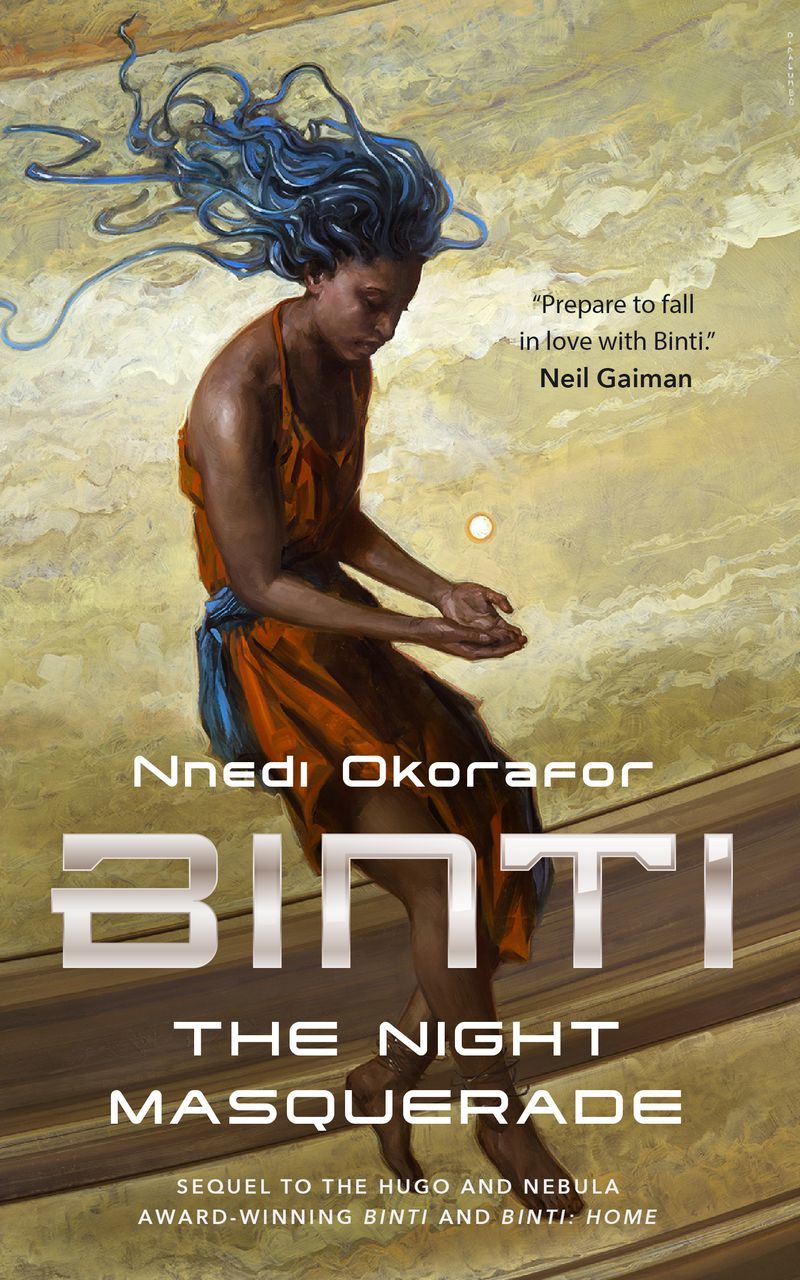- The Good: African space futurism like nothing I’ve read before
- The Bad: Detached prose
- The Literary: Themes of inclusion and acceptance
Binti returns home to Earth, but instead of finding things as they were when she left to attend prestigious space university Oomza Uni, her people are caught in the middle of a vicious rivalry between the Khoush and the Meduse. Along with an intriguing new friend Mwinyi, Binti decides to try to prevent the war, despite a lack of support from her people’s elders.
There’s a lot I really like about the Binti series. In this conclusion to the trilogy, Binti experiences internal conflicts about going home after exploring a wider world that sets her apart from her family. Binti struggles with her own identity and her place, while at the same time struggling with the external conflict of intervening in tribal politics in which she no longer has a role.
These books are really unique. The world building stands out. In an isolated African community, traditional magic and alien technology seamlessly coexist. Binti turns her back on her place in the community, or so her family sees it, to enter the greater galactic community. She befriends a wide variety of aliens, learns new magic, and masters complex math in her head, all while bringing along the strange customs of her tribe. She never quite fit in at home; and she never quite fits in anywhere else either.
I continue to read the Binti series because I like the story, but in each case, I struggle with the way it’s told. The prose is detached, sparse, completely unadorned, which is probably on purpose, echoing the themes of alienation, but to me it reads as uninviting and distant. If you’re in the mood for some Afro-futurism, read an excerpt before you buy the book.
“I’m not meant to stay here. You know it. You’ve always known it. I was always going out into the desert. You know? Because it’s huge, it’s vast. When I look back, the desert and space, they feel similar.”
